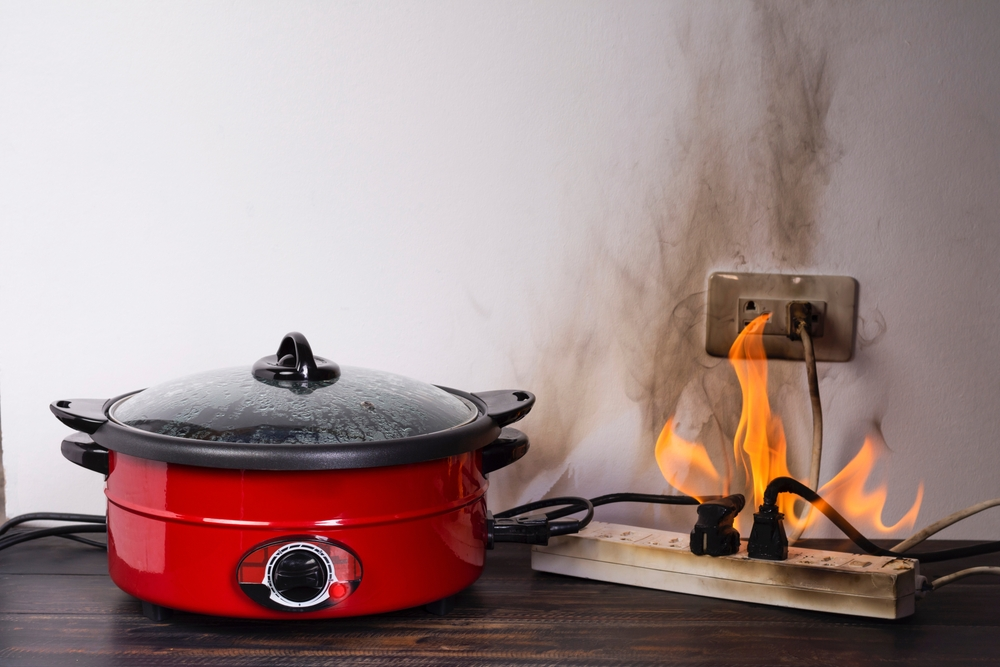Common Causes of Electrical Fires and How to Prevent Them
Electrical fires are one of the leading causes of property damage in homes and businesses, and they often strike without warning. Many of these fires are preventable with proper care and maintenance. Understanding the common causes and implementing prevention measures can save lives and property. Here’s what you need to know.
1. Faulty Wiring
One of the primary causes of electrical fires is faulty or outdated wiring. Over time, wires can become frayed or damaged, causing sparks or overheating that ignite nearby materials.
Prevention Tip:
Schedule regular inspections by a licensed electrician, especially if your home is more than 20 years old. Ensure your wiring meets modern safety standards.
2. Overloaded Circuits
Plugging too many devices into a single outlet or power strip can overload the circuit, generating heat and potentially causing a fire.
Prevention Tip:
Avoid overloading outlets and use power strips with surge protectors. Distribute electrical devices across multiple circuits to reduce the load.
3. Misused Electrical Appliances
Using appliances incorrectly, such as running them for long periods or using damaged cords, can lead to overheating and electrical fires.
Prevention Tip:
Always follow manufacturer guidelines for appliance usage. Replace frayed or damaged cords immediately.
4. Space Heaters
Space heaters are a common culprit in electrical fires, especially when placed too close to flammable materials like curtains, furniture, or bedding.
Prevention Tip:
Use space heaters with automatic shut-off features, and keep them at least three feet away from anything flammable. Never leave a space heater unattended.
5. Old or Damaged Electrical Outlets
Worn-out outlets can cause loose connections, leading to arcing and sparking. This is particularly dangerous if the outlet is near flammable objects.
Prevention Tip:
Inspect outlets regularly for signs of damage, such as discoloration or loose plugs. Replace old outlets with modern, safer versions.
6. Improper Use of Extension Cords
Extension cords are meant for temporary use, but many people rely on them for permanent solutions, increasing the risk of overheating and fire.
Prevention Tip:
Limit the use of extension cords and avoid daisy-chaining multiple cords together. Instead, install additional outlets if needed.
7. Light Fixtures and Bulbs
Installing bulbs with higher wattage than a fixture can handle may cause overheating and fires.
Prevention Tip:
Always use bulbs that match the wattage limit specified for your light fixtures. Avoid covering lamps with flammable materials.
8. Electrical Arcing
Electrical arcing occurs when electricity jumps between loose or damaged connections, generating intense heat and sparks that can ignite fires.
Prevention Tip:
Have an electrician inspect your home for loose connections or damaged wires. Use arc-fault circuit interrupters (AFCIs) to prevent arcing.
9. Outdated Electrical Panels
Older electrical panels may not handle the demands of modern electrical appliances, increasing the risk of overheating and fire.
Prevention Tip:
Upgrade your electrical panel to meet current safety standards and the power needs of your home.
10. Neglected Maintenance
Regular maintenance of your electrical system is essential to prevent wear and tear that can lead to fires.
Prevention Tip:
Schedule annual electrical inspections and address any issues promptly.
How to Respond to an Electrical Fire
Turn Off the Power
If it’s safe to do so, turn off the power at the circuit breaker to stop the flow of electricity.
Use the Right Fire Extinguisher
Never use water on an electrical fire. Use a Class C fire extinguisher designed for electrical fires.
Call for Help
Contact emergency services immediately, even if the fire appears to be small and manageable.
Conclusion
Electrical fires can be devastating, but most are preventable with proper care, regular maintenance, and safe practices. By understanding the common causes and taking preventive steps, you can significantly reduce the risk of an electrical fire in your home or business.
Call to Action
Concerned about your home’s electrical safety? Contact 24/7 Best Emergency Services for professional inspections, repairs, and upgrades. Let us help you create a safe and secure environment for you and your loved ones. Stay safe—act now!
